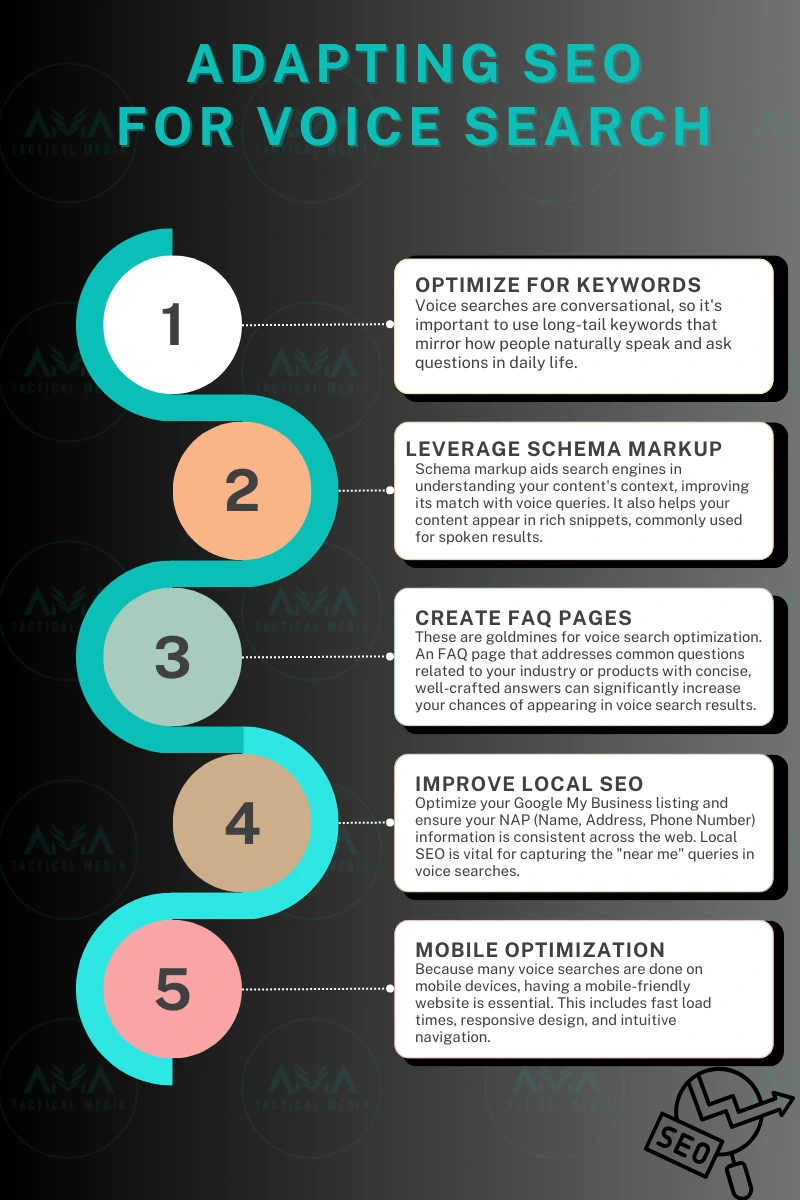
Article | Published:
Voice Vanguard: Exploring the Nexus of SEO and Auditory Evolution
The evolution of voice search technology has introduced a new paradigm in digital marketing, particularly in the realm of search engine optimization (SEO). As voice-enabled devices become increasingly prevalent, brands must adapt their SEO strategies to stay relevant in this auditory-driven landscape. This blog post delves into the intersection of SEO and voice technology, offering insights into how marketers can optimize for voice search to maintain a competitive edge.
The Rise of Voice Search
Voice search technology allows users to perform searches by verbally asking questions on smartphones, smart speakers, and other voice-enabled devices. The convenience and improved accuracy of voice recognition technologies have led to a surge in voice search usage. According to Google, nearly 27% of the global online population is using voice search on mobile. With the rise of AI assistants like Siri, Alexa, and Google Assistant, voice search is expected to continue growing, reshaping how consumers find information and interact with brands.
AMA Tactical Media has adeptly embraced the shift towards voice search by integrating conversational keywords and creating robust FAQ pages that align with natural language queries. We’ve optimized our clients’ local SEO to capture the surge in “near me” voice searches, ensuring mobile optimization across all platforms to enhance user experience and search performance. These strategies have positioned us at the forefront of the auditory SEO evolution, significantly boosting visibility and engagement for our clients.
Understanding Voice Search Behaviour
Voice searches are fundamentally different from traditional text-based searches. They tend to be more conversational, longer, and more specific. Users often seek immediate answers or solutions while on the go, which influences how marketers should approach content and SEO strategy.
Question-Based Queries: Most voice searches are phrased as questions. Preparing content that directly answers these queries can enhance visibility in voice search results.
Local Search Intent: Many voice searches have local intent. Phrases like “near me” or “close by” are common, which means businesses need to optimize their local SEO strategies.
Adapting SEO for Voice Search
- Optimize for Conversational Keywords: Since voice searches are conversational, it’s crucial to incorporate long-tail keywords that reflect how real people talk and ask questions in everyday conversations.
- Leverage Schema Markup: Schema markup helps search engines understand the context of your content, making it easier to match with relevant voice queries. Structured data can also help your content appear in rich snippets, which are often used for spoken results.
- Create FAQ Pages: These are goldmines for voice search optimization. An FAQ page that addresses common questions related to your industry or products with concise, well-crafted answers can significantly increase your chances of appearing in voice search results.
- Improve Local SEO: Optimize your Google My Business listing and ensure your NAP (Name, Address, Phone Number) information is consistent across the web. Local SEO is vital for capturing the “near me” queries in voice searches.
- Focus on Mobile Optimization: Because many voice searches are done on mobile devices, having a mobile-friendly website is essential. This includes fast load times, responsive design, and intuitive navigation.

Challenges and Considerations
While voice search presents numerous opportunities, it also poses challenges, particularly around privacy and the accuracy of voice recognition technology. Furthermore, the lack of visual interaction with content could change how marketers design and structure their online presence.
The Future of Voice Search and SEO
As voice recognition technology advances, we can anticipate even deeper integration of voice search into everyday activities. Marketers must continue to innovate and adapt their strategies to align with how technology transforms user behaviour. The importance of staying updated with the latest tools and trends cannot be overstated in this rapidly evolving field.
Voice search optimization is more than just a trend—it’s a fundamental shift in how users interact with search engines. By understanding and implementing SEO strategies that cater to the unique nuances of voice search, brands can enhance their visibility and engagement in the digital era. As we stand on the brink of auditory evolution in search technology, the potential for reaching customers through voice search is vast and largely untapped. Brands that can navigate this new terrain effectively will not only survive but thrive in the Voice Vanguard.
Cite this article
Anthony, A. (2024, December 31). Voice Vanguard: Exploring the Nexus of SEO and Auditory Evolution. AMA Tactical Media. https://amatacticalmedia.com/blogs/voice-vanguard/